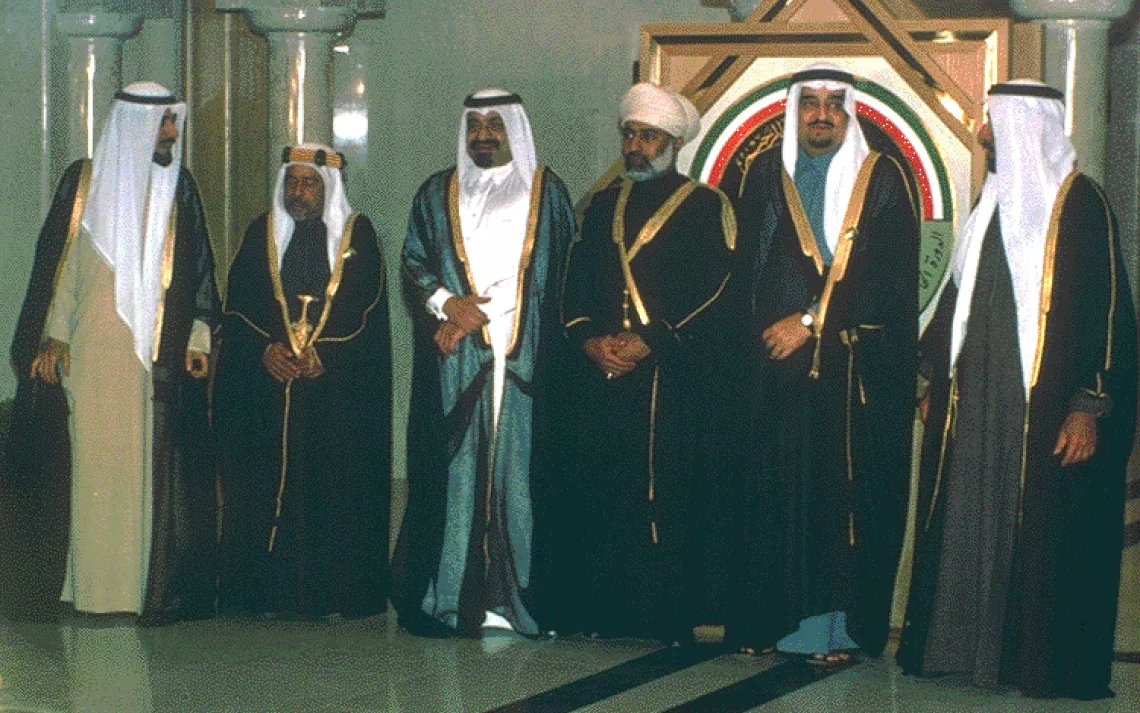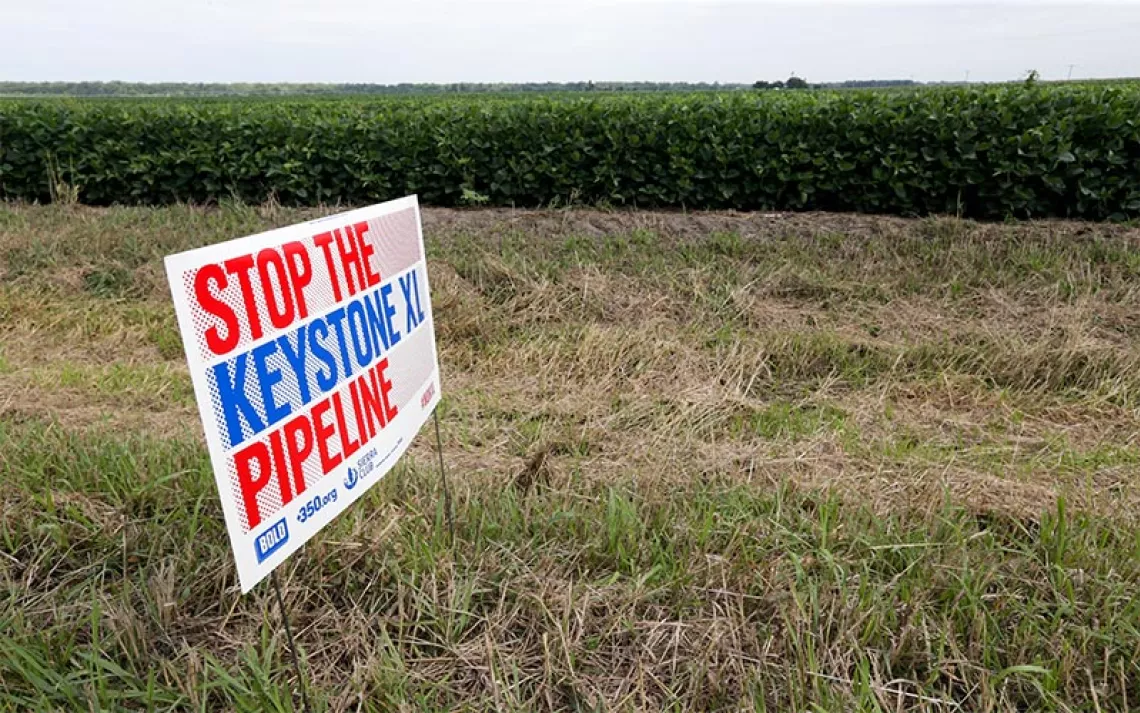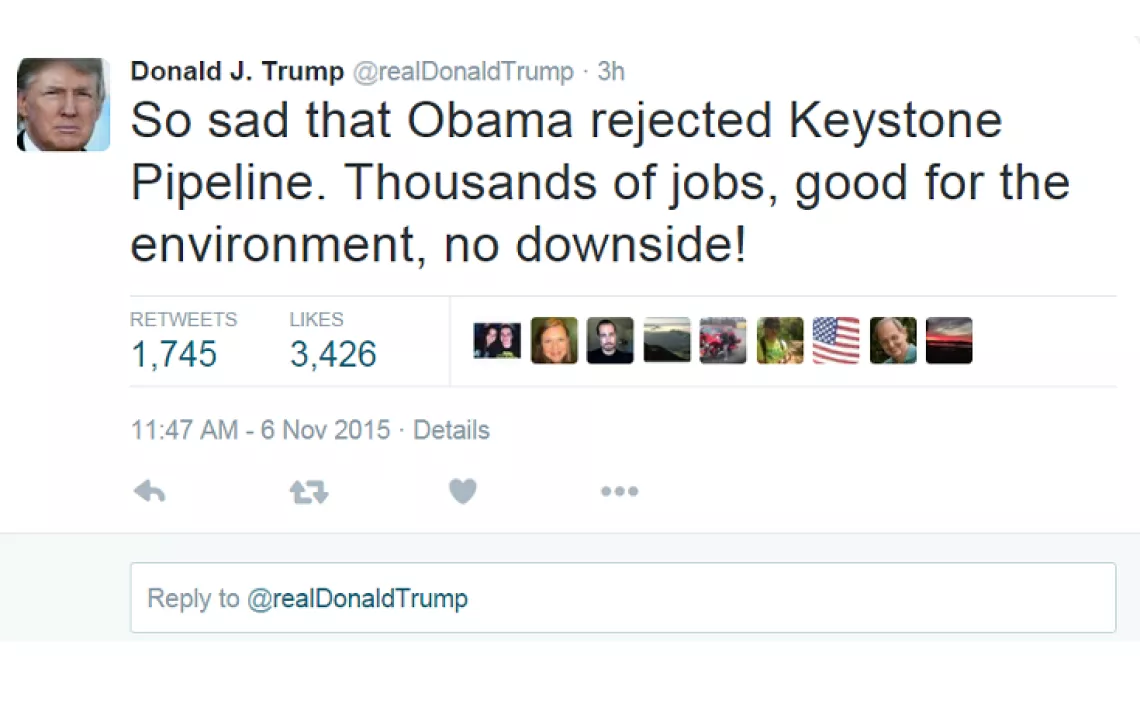Our Best Ally In the Fight Against Keystone XL: The House of Saud?

Today the United States Senate joined the House of Representatives in passing legislation backing construction of the Keystone XL pipeline. Environmentalists are depending on President Barack Obama's veto pen to block the project--at least until the State Department issues its final ruling in the matter. But we have another, even more potent ally in the fight: the House of Saud. Rather than cutting back production in order to stabilize oil prices, the world's largest oil producer is keeping its petroleum taps wide open, hoping to drown upstart competitors in Canada, North Dakota, and Russia in a sea of cheap oil. Here's Puneet Kollipara in The Washington Post:
The idea behind the Saudis’ gambit was simple — to avoid ceding their market share while observing how low North American and other producers would go before the price of oil was no longer right for them to keep pursuing higher-cost projects. If the latest earnings and outlook announcements by oil giants like Royal Dutch Shell are any indication, the Saudis’ strategy is starting to work. . . . The Saudis are hoping that lower prices brought on by the supply surplus will eventually have a broader impact on the U.S. shale boom and discourage relatively high-cost investments in the Russian Arctic, the Canadian oil sands and Brazil’s deep offshore waters. While those latter three are long-term projects that rely on long-term oil prices, companies still tend to pay a lot of attention to what’s happening now. And Saudi Arabia can afford to wait. Even though prices have tumbled, Saudi Arabia has a large treasure chest of savings from past years and some of the world’s lowest production costs.
Today the price of West Texas intermediate crude oil is $44.80 a barrel. Canadian oil-sands producers need a price of between $65 and $75 a barrel to be profitable. Existing production is somewhat protected by long term contracts, but prices like that are sure to stifle new production--and put the hurt on sellers of expensive, dirty oil to new customers.
Of course, this "sea of cheap oil" has its own severe environmental downsides. Sales of gas-guzzling vehicles are rebounding, for example, creating a bind for automakers who are under federal mandates to increase the fuel-efficiency of their vehicle fleets. This is when we see the real value of higher fuel economy rules:
American car buyers are unlikely to ever fully consider what today’s purchase means for tomorrow—either economically for them, or environmentally for all of us. But thanks to the president’s new fuel economy rules, automakers now have no other choice.
 The Magazine of The Sierra Club
The Magazine of The Sierra Club






